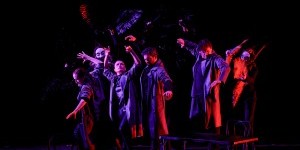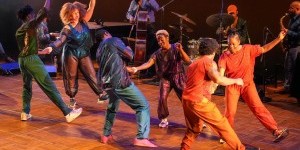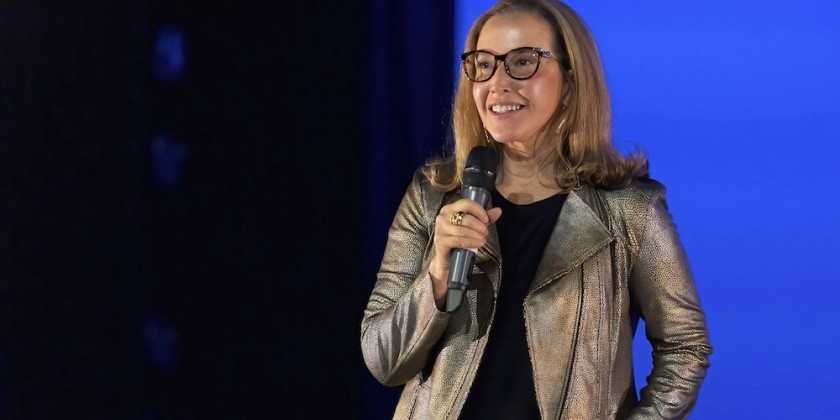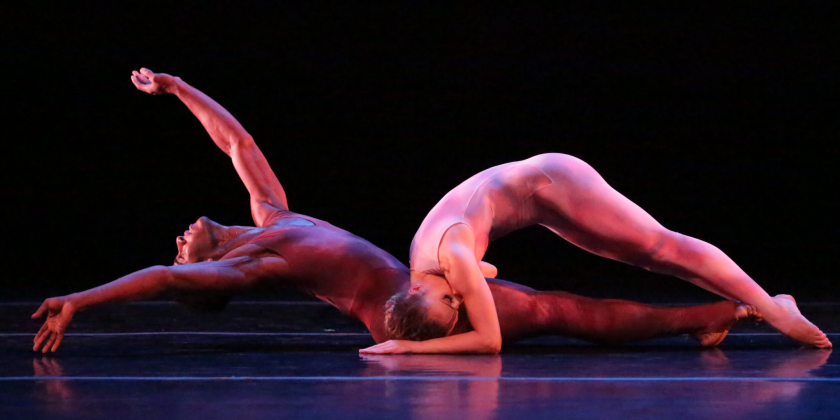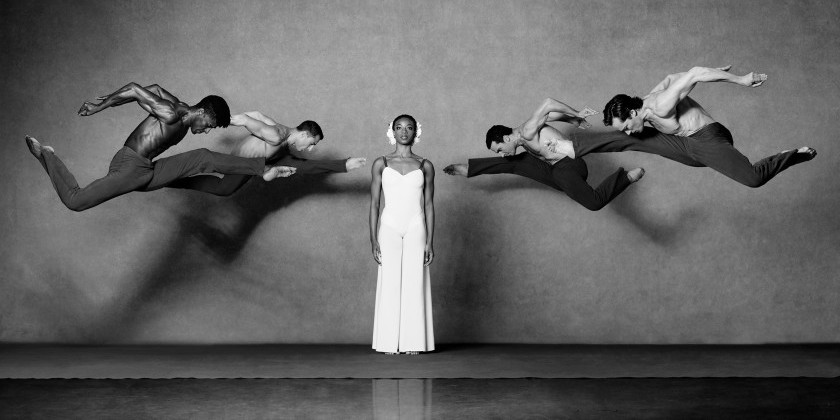Bessies 2015: The Dance Enthusiast Meets Soledad Barrio, the Artist Who Is "Antigona"
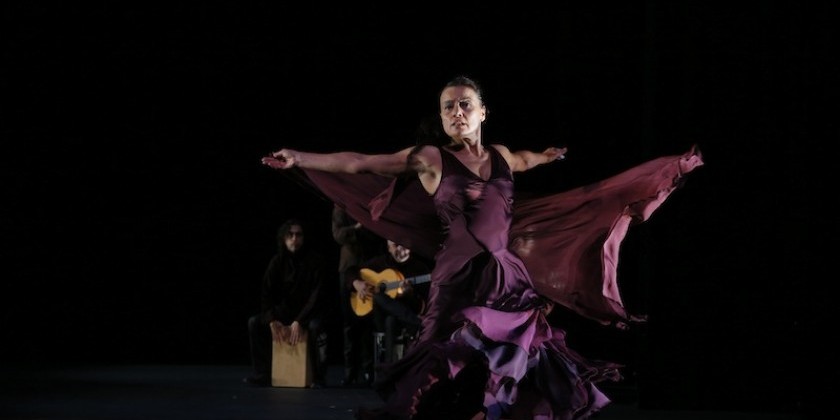
The Flamenco Artist Brings the Greek Tragedy to Life
Widely regarded as one the most prolific dancers of our time, Soledad Barrio has anchored Flamenco's presence in the contemporary concert dance world with her masterful storytelling. With her company Noche Flamenca, Barrio imbues flamenco with the theatricality of proscenium performance without sacrificing the aesthetic subversiveness of baile (dance), cante (singing) and guitarra (guitar).
The company's most recent work, Antigona ,directed by Martin Santangelo, merges the stylized dramatism of Flamenco and ancient Greek tragedy, along with elements of Hip Hop, in an emotionally arresting adaptation of Sophocles' tale about a sister's unwavering loyalty to her deceased brother. Barrio, who plays the production's title role, embodies Antigone's confounding emotional turmoil with conviction and sobering fragility. Together with a chorus of dancers and live musicians, Noche Flamenca’s adaptation breathes new life into the ancient tragedy, bringing the duende to ever resonant themes of loyalty, individual autonomy and justice.
In anticipation of Antigona's 2015 Bessie nomination for Outstanding Production, I sat down with Soledad Barrio to reflect on the making of Antigona, virtuosity, and Flamenco’s contributions to the contemporary dance world.
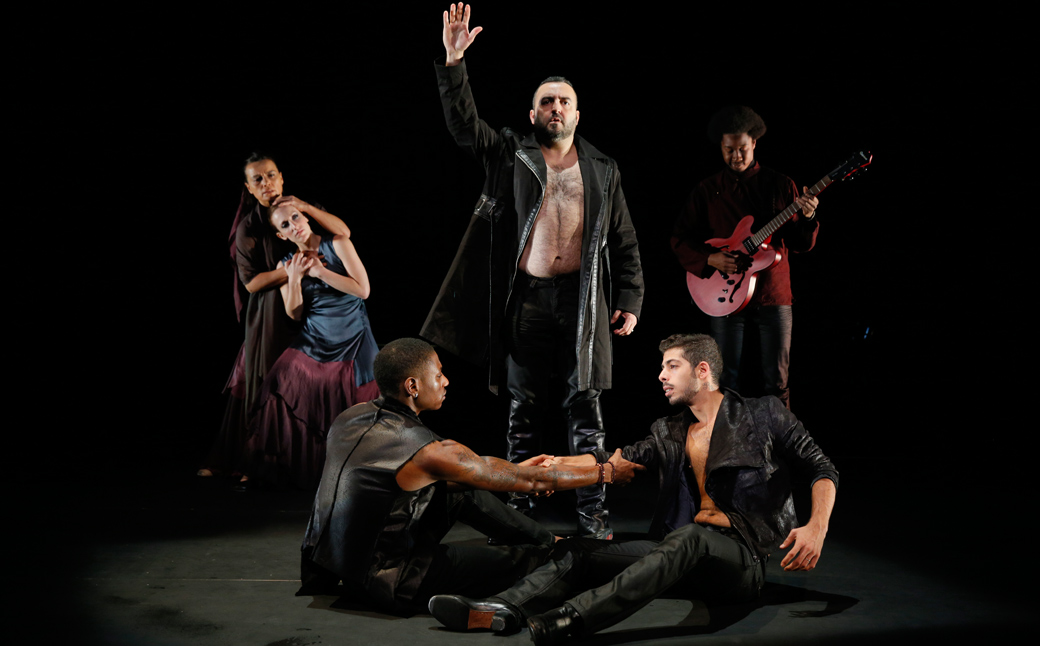
Ali Rosa-Salas for The Dance Enthusiast: What was the inspiration behind the creation of Antigona?
Soledad Barrio: It was the decision of Martín [Santangelo], the director. When I learned about the inspiration of the play and the motivations behind Antigone’s character, I became very interested in Antigone. The piece says so much about the power of women, love, and what it means to be human. I knew I wanted to explore this character more.
TDE: It's clear that Antigone's character really resonates with you personally. Can you speak more about the similarities between you and Antigone?
SB: I love my family and am very close to them. Good times and bad, we remain united. I relate to Antigone because like her character, I place a lot of importance on the value of family. Also, in my life, like Antigone, it is important for me to defend what I believe is just.
TDE: Noche Flamenca's production requires a great deal of emotional intensity. I'm curious to know how you bring yourself to this place physically and emotionally for every performance.
SB: I'm always thinking about what it means to be human, asking questions like, who am I? Who are you? why am I here? I think that the emotional intensity of the work and becoming Antigone's character every night hasn't been as difficult for me because I am always thinking existentially.
TDE: Antigone's existential themes have resonated with and been interpreted by countless choreographers, composers and visual artists. What do think the history of flamenco and brings to the story that distinguish it from other adaptations of the play?
SB: Flamenco is an expression of minority people. It is very grounded in this history, the land, its origins. As an art form, Flamenco--which is not only dance, but also includes singing and guitar--has unique way of linking people through the communication of realities, both good and bad, that impact human beings in deeply emotional ways. I find that the history of Flamenco and the story of Antigone are connected because of how they are interested in expressing the human condition.

TDE: To that end, can you speak to why you believe Flamenco has endured for centuries and has resonated with audiences on a global scale?
SB: Flamenco is less concerned with athleticism as it is defined in other art forms. Speaking as a dancer, I am more concerned with expressing humanity than virtuosity. Not to say that Flamenco dance is not athletic or virtuosic in its own way. Though I find that in other dance forms, technical skill is seen as more important than it is in flamenco. Dancing well in flamenco means that you are truly being yourself. Improvisation--the live communication among the music, the dancer and the environment--sets Flamenco apart.
When a performer takes risks and makes themselves vulnerable, the audiences can feel it. You don't have to understand the verses of the song or the origins of the movement to understand the pain and happiness that the artist is communicating. From all the places I've traveled and performed, from New York to Japan, the audience responds to authenticity.





